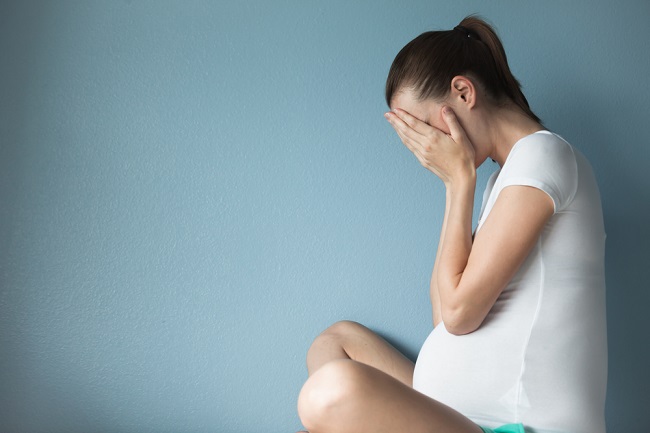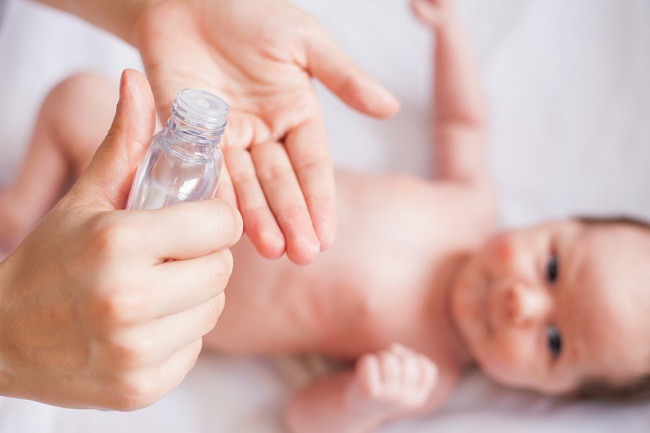Babies rarely cry often make parents anxious and wonder, is this a sign that the baby has a disorder or an illness? To find out the reasons why babies rarely cry, let's look at the discussion in the following article.
Crying is a baby's way of communicating with you. The reason a baby cries is usually to tell him that he is hungry, sleepy, cold or hot, his diaper is wet, uncomfortable, scared, or bored and just wants to be held.

The crying pattern of one baby with another baby is different. On average, babies cry about 1-3 hours per day and usually more often in the afternoon and evening.
What are the things that make babies rarely cry?
There are some babies who cry more than 3 hours per day, but there are also those who cry less and seem not fussy. This can be caused by several things, such as:
1. Proper breastfeeding schedule
Hunger is one of the most common causes of crying babies, especially newborns. Babies still can't hold a lot of milk in their stomach, so they will quickly feel hungry again after drinking milk.
Therefore, parents need to breastfeed their baby on schedule, before the baby feels hungry. If breastfed regularly, usually the baby will appear calmer and less likely to cry.
2. Diligently change diapers
Babies may cry because of discomfort when the diaper is wet or soiled with urine and feces. If parents are diligent and routinely change the baby's diaper, then the possibility of the baby crying due to this will also be smaller.
3. Baby feel comfortable
Babies will cry less when they are comfortable, for example when they are wearing soft and breathable clothes, or when the room temperature is comfortable. Comfortable conditions will make the baby calmer, less fussy, and sleep more soundly.
4. Baby's temperament
Temperament is a form of baby's reaction to what is happening around him. Every baby is born with a different temperament or nature.
Some babies have a character that easily adapts to new situations and people, so they seem not fussy and rarely cry. Some babies actually have the opposite character. They tend to feel uncomfortable and cry easily when in a situation or meeting new people.
Some babies are also more sensitive to light or noise, so they are easily irritated and cry, especially if the light or noise wakes them from sleep.
When to Worry jIf Babies Rarely Cry?
Even though babies rarely cry, you don't need to worry as long as your baby is active and healthy. In addition, there are several other conditions that you shouldn't worry about if your baby cries less often, including:
- Want to play.
- Appear responsive and interested in sounds or objects around him.
- Can breastfeed and eat well.
- Normal growth and development according to age.
- Height and weight increase with age.
- Get enough sleep.
But if your little one rarely cries and shows suspicious symptoms or signs, then you need to be alert and take him to the doctor immediately. The following are signs and symptoms to watch out for if your baby cries less often:
Babies are less active
Babies look weak, tired, lethargic, often sleepy, and even sleep longer than usual. Sometimes babies also become lazy to play or do not respond when invited to talk and play.
No appetite or lazy to breastfeed
Babies usually feed every 2-4 hours. If your baby suckles less frequently, continues to fall asleep, and won't feed even when it's time to feed, or if your baby vomits a lot after feeding, this could be a sign that he or she is sick.
Weight loss
Babies usually lose weight by 10% of their birth weight in the first week of life, but the baby's weight will return to normal within 2 weeks. If the baby's weight continues to decrease or his weight does not increase and is not in accordance with his age, then this condition also needs to be considered.
You also need to be alert and immediately take your little one to the doctor if he rarely cries and experiences other symptoms such as:
- Fever
- Hard to breathe
- Breath sounds
- Lips look bluish
- Pale and cold skin
- Eyes look sunken
- Rarely or not peeing at all
- Seizures
If the baby rarely cries accompanied by some of the above symptoms, then it is highly likely that he or she has a certain disease or condition that requires immediate medical attention.
now, you may now understand enough and can distinguish the condition of a baby who rarely cries, which is normal and one that needs to be watched out for. If your little one cries a lot but is normal, then this is most likely not something to worry about.
However, if your little one rarely cries and shows other symptoms that need to be watched out for, you should immediately take him to the pediatrician for examination and treatment.









